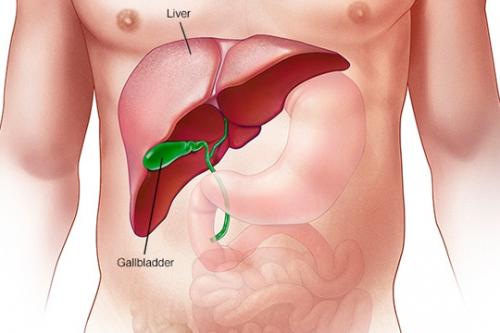What Is Hydatid Cyst Of The Liver?

About hydatid cyst
Hydatid cyst is formed as a result of tapeworm infection that results in the formation of small cysts containing tapeworm larvae which may grow in the patient's body for years and is most likely to affect the liver, lungs, brain and other organs. Sometimes the problem may go undetected for years as these usually do not show any major symptoms initially. However, when the cysts become large they can lead to nausea, weakness, coughing and stomach or chest pain. Hydatid cyst is mainly spread by contact with animal faeces containing tapeworm Echinococcus granulosus. The problem can be treated surgically. A lot of people prefer to undergo hydatid cyst surgery in Delhi owing to the very high success rate of the procedures offered here. In fact, you can find some of the best doctors for hydatid lung treatment in Delhi.
How does the problem spread?
The problem is usually passed through dogs and cattle. Dogs can carry the parasite and pass it along with their faeces without showing any symptoms. People acquire the disease through hand to mouth transfer of the affected eggs which is likely to happen accidentally especially if you are a dog owner. The problem cannot spread from one person to another and the only source is direct contact with contaminated faeces. The problem is very common in rural areas due to lack of proper hygiene and closer contact with cattle and dogs.
Various symptoms of hydatid cyst
Hydatid cysts are fluid-filled cysts that continue to grow over time. These are more likely to occur in the liver and lungs however other organs like heart, brain and bones are also vulnerable to it. Initially, the patient does not experience any major symptoms and these become evident only after the cyst becomes large or breaks. Patient's are likely to experience coughing, nausea, shortness of breath, fatigue, weakness and pain in the affected area.
How is the problem diagnosed?
Hydatid cyst is diagnosed with proper screening and imaging. The doctor may recommend tests like x-ray, ultrasound, CT scan, MRI scan and even simple blood test. Your doctor will collect a small amount of fluid from the cyst for microscopic examination. These tests help in the proper diagnosis and assessment of the problem which helps the doctors to figure out a proper medical protocol to be undertaken.
What are the various stages of the disease?
The infection spreads in two stages. These are as under:
Incubation period - this refers to the time between getting affected and showing visible symptoms. It may take up to months or even years for the symptoms to show clearly and depends upon the number of cysts, their location and their growing speed.
Infectious period - the incubation period is followed by the infectious period, a time during which the infected person can pass on the disease to others. However, there is no direct person to person transmission.
What are the possible complications?
As per some of the leading doctors specialising in hydatid cyst liver treatment in India, hydatid cysts are most likely to affect the patient's liver and can lead to severe complications in about 40 per cent of the cases. The rupturing of the cyst can rupture releasing the larvae into the surrounding area. The cyst can rupture to the biliary tree, peritoneal cavity, pleural cavity, gastrointestinal tract; bladder and the nearby vessels.
Rupture of hydatid cyst in the Biliary ducts can trigger problems like cholangitis, sclerosis oddities, hydatid biliary lithiasis etc.
Rupture of hydatid cyst in the thoracic cavity is commonly known as intrathoracic rupture an is a very rare problem that can result in lesions to the pleura, lung parenchyma, and bronchi. Bronchobiliary fistula can also trigger hemoptysis and cyst expectoration.
Rupture of hydatid cyst in the peritoneum may lead to slight abdominal pain, nausea, vomiting and urticaria. Allergic reactions may be seen in around 25 per cent of the patients. It can even trigger the growth and spread of more cysts.
Portal hypertension and vascular erosion are very rare.
If the cysts open in the digestive tract, the patient is likely to pass the daughter vesicles along with vomit or stools. This results in a decrease in the volume of the cyst.
Is there any treatment possible?
The treatment involves the surgical removal of the cyst/cysts along with certain drugs and medicines to help with the symptoms and kill any parasites that are left intact during the surgery.
How can you prevent the problem?
You can easily prevent the problem from affecting you and your loved ones by taking certain precautionary measure.
Gather all the information about the disease and spread as much awareness as you can.
Exclusion from childcare, preschool, school or work is not required and you can continue with your day to day routine.
Maintain proper hygiene. Wash your hands after playing with your pets.
Do not let your dog lick your face. The larvae can be passed through their saliva.
Post Your Ad Here
Comments